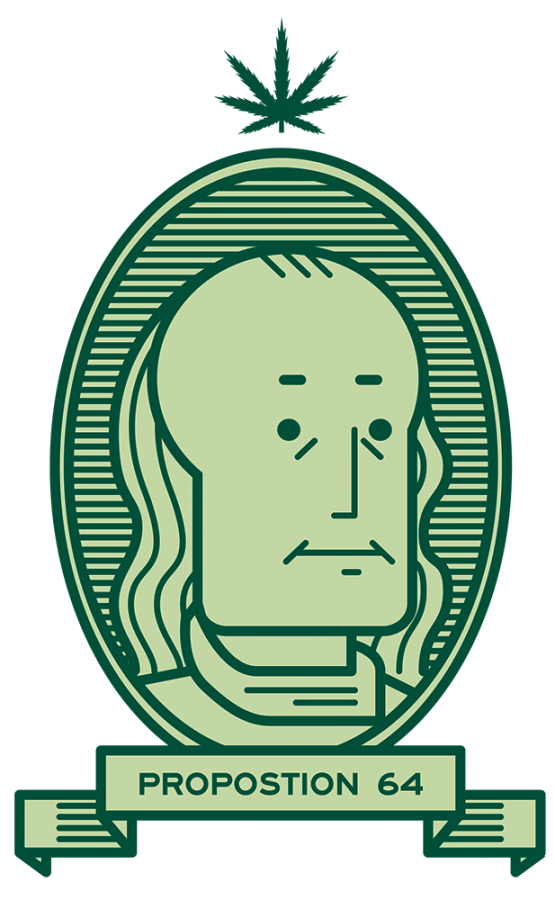Legal marijuana is good for California
This November, voters will have the opportunity to decide whether or not to legalize the cultivation and sale of recreational marijuana in the state of California. If Proposition 64 is passed, California would become the fifth state to legalize recreational marijuana.
Legalization is long overdue and would be good for California because it would create a new taxable industry. This initiative first appeared on the ballot in 1972 with Proposition 19, but did not pass. In 1996, California became the first state in the union to legalize the use of medical marijuana.
A proposition to legalize recreational marijuana appeared again on the 2010 ballot, but failed.
Prop 64 would allow anyone over 21 to buy and grow marijuana legally and would enact a 15 percent sales tax on marijuana sales. According to the bill, the sale of non-medical marijuana in designated marijuana stores would be prohibited near schools or other places where children are present.
If California were to legalize marijuana, we would likely see a large tourism boost. Colorado legalized marijuana in 2014 and has seen a recent boom in tax revenue, directly correlated with the marijuana legislation. According to Time magazine, Colorado received $70 million in taxes from marijuana in 2015 alone.
Coloradopotguide.com offers people information, dates and times of various marijuana events, tours and activities. It also recommends hotels that allow marijuana use. California could develop similar tourist attractions to generate revenue for the state.
Washington, another state with legal recreational marijuana, has also seen a prosperous market. According to 502data. com, a site that reports data on Washington’s recreational marijuana market, in 2015 recreational marijuana retail sales alone brought in $322,823,639.
Medical marijuana has already created a prosperous industry in California. An article on news site Fusion.net estimates that California brings in between $59 million and $109 million in medical marijuana tax revenue. According to the California State Board of Equalization, in 2014, the 1,623 dispensaries registered with the board reported $570 million in taxable income, which amounted to $49.5 million in tax due to the state. Legalization would only increase California’s marijuana market.
There are many opponents of the bill, like U.S. Sen. Dianne Feinstein. Feinstein is one of many in support of “No on 64,” a group that openly opposes the proposition. In a July 12 press release by “No on 64,” Feinstein expressed concern about children seeing marijuana advertisements and claimed that Proposition 64, “allows marijuana smoking ads in prime time, on programs with millions of children and teenage viewers.” However, according to Politifact, as of August 5th, no marijuana advertisements have been shown in states that have legalized it.
The legalization of recreational marijuana has been and continues to be a hot-button issue for California. Many long-time residents of California have been waiting for marijuana legislation since the 1970s.
Though California would not necessarily make history with this vote, by approving the measure, it would show that we are on the forefront of a new and exciting market.







